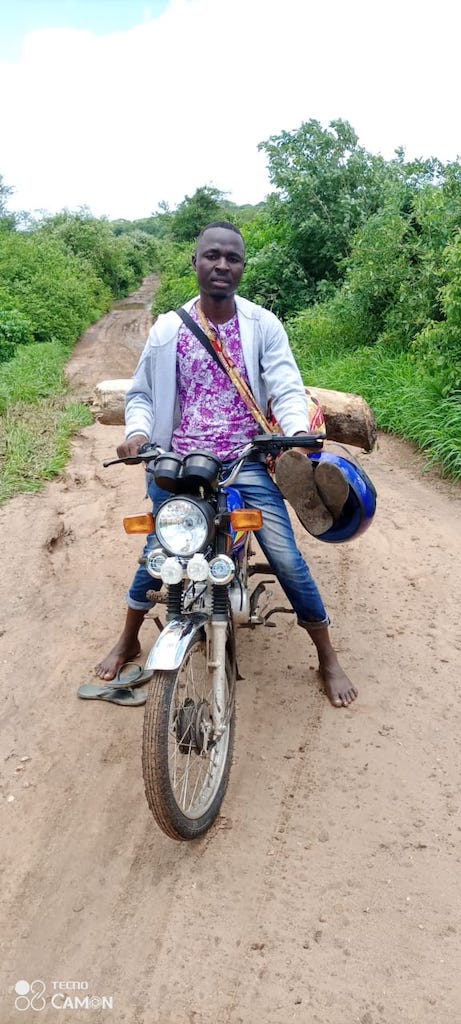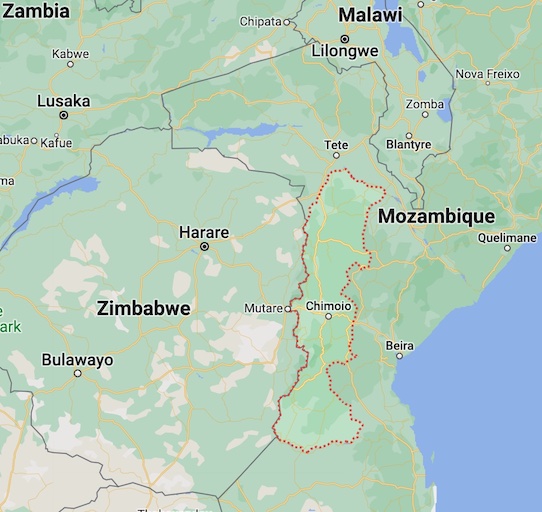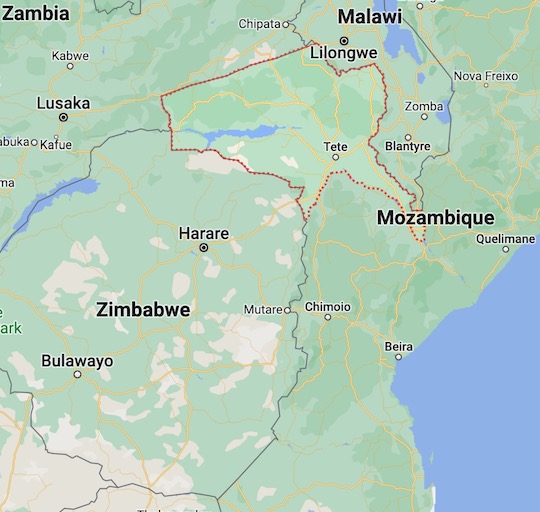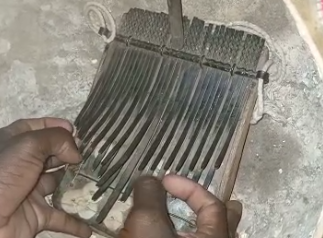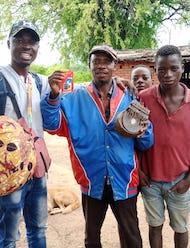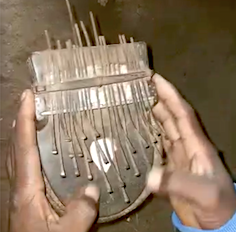Please contribute to our
fundraiser
».
Thank you if you already have!
Visibility for kalimba makers and players in rural Mozambique
Project Goals
In Q3/2022, SR teamed up with Tatenda Lenade Cangola whose mission is to locate kalimba players and makers in the Mozambican border regions near Zimbabwe, and provide them with media visibility, so that- they can make connections as musicians, and their art gets more widely known
- they sell their instruments both nationally and internationally
- their types of mbira find more students at home and abroad, similar to our mbira dzaVaNdau course.
Means and Outcome
To this end,- we are creating biographical pages in Portuguese and English (example)
- we create virtual instruments (example)
that show key layout and tuning, and serve as the basis for future interactive tutorials
Virtual version of Sekuru Macequessa's Kalimba nkulu - we commission instruments from each instrument maker to ensure their quality (this happens outside of the project budget)
- we provide instruments without players to players without instruments (in many families there are orphaned instruments, or traditional music is given up when entering church. On the other hand, Tatenda keeps meeting older, formerly very active musicians who cannot afford a new instrument)
- we disseminate the contact information offline to strengthen the local network of musicians and artisans, and eventually create an association.
- we spread the information through our social media channels.


